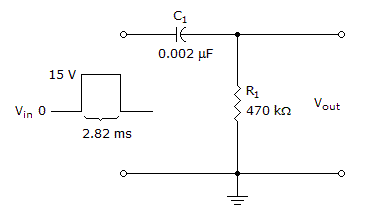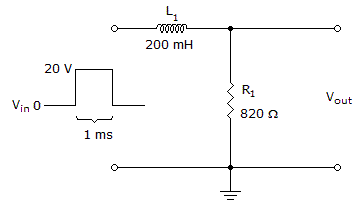Discussion
Home ‣ Electronics ‣ Operational Amplifiers See What Others Are Saying!
- Question
If a noninverting amplifier has an RIN of 1000 ohms and an RFB of 2.5 kilohms, what is the RIN voltage when 1.42 mV is applied to the correct input?
Options- A. 3.5 mV
- B. ground
- C. 1.42 mV
- D. 0.56 mV
- Correct Answer
- 1.42 mV
- 1. For a capacitor to completely charge in an RC integrator, the pulse width must be _____ 5 time constants.
Options- A. less than
- B. greater than
- C. equal to
- D. greater than or equal to Discuss
- 2.

When the current through a coil reverses direction, the magnetic field around the coil _____.
Options- A. does not change
- B. disappears
- C. increases in strength
- D. reverses direction Discuss
- 3. A rectangular wave that has a duty cycle of 50% could be called a
Options- A. "c" wave
- B. sawtooth wave
- C. square wave
- D. triangular wave Discuss
- 4. Bleeder current is the total current left after the total divider current is subtracted from the total current into the circuit.
Options- A. True
- B. False Discuss
- 5. The content of a simple programmable logic device (PLD) consists of:
Options- A. fuse-link arrays
- B. thousands of basic logic gates
- C. advanced sequential logic functions
- D. thousands of basic logic gates and advanced sequential logic functions Discuss
- 6. The difference between the upper and lower trigger points is called the Schmitt trigger.
Options- A. True
- B. False Discuss
- 7.

In the given circuit, what must the pulse width and time between pulses be to allow the capacitor to completely charge by the end of each pulse and to completely discharge between each pulse?
Options- A. 940 µs
- B. 2.82 ms
- C. 3.76 ms
- D. 4.7 ms Discuss
- 8. If four 10 kΩ resistors are in series with a single 20 kΩ resistor and one of the parallel resistors shorts, the voltage across the other parallel resistors ________.
Options- A. increases
- B. decreases
- C. remains the same
- D. drops to zero Discuss
- 9. For inductions in series, LT = L1 + L2 + L3 +...
Options- A. True
- B. False Discuss
- 10.

It takes ______ for the output voltage in the given circuit to reach its maximum value.
Options- A. 0 s
- B. 243.9 µs
- C. 1 ms
- D. 1.22 ms Discuss
More questions
Correct Answer: greater than or equal to
Correct Answer: reverses direction
Correct Answer: square wave
Correct Answer: False
Correct Answer: thousands of basic logic gates and advanced sequential logic functions
Correct Answer: False
Correct Answer: 4.7 ms
Correct Answer: decreases
Correct Answer: True
Correct Answer: 1.22 ms
Comments
There are no comments.More in Electronics:
Programming
Copyright ©CuriousTab. All rights reserved.
